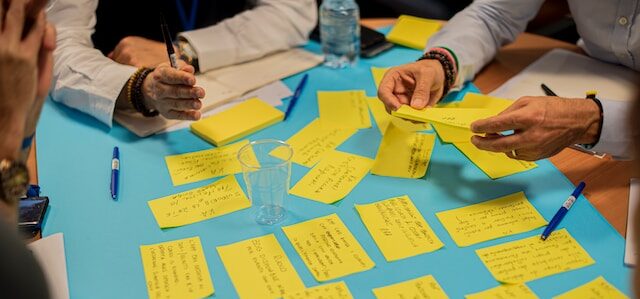As set out in the German Site Selection Act (StandAG), the Federal Office for the Safety of Nuclear Waste Management (BASE) is charged with the comprehensive information and participation of the public in regards procedure for the search and selection of a repository site for the final disposal of high-level radioactive waste. In this context, in February 2022 BASE commissioned an expert report on the “Possibilities and limits of digital participation tools for public participation in the repository site selection procedure (DigiBeSt)” from the Düsseldorf Institute for Internet and Democracy (DIID) at Heinrich Heine University Düsseldorf in cooperation with the nexus Institute Berlin. For this purpose, lead by Tobias Escher a review of the state of research and current developments (work package 2) was prepared has been summarised in a detailed report (in German).
Selected findings from the report are:
- Social inequalities in digital participation are mainly based on the second-level digital divide, i.e. differences in the media- and content-related skills required for independent and constructive use of the internet for political participation.
- Knowledge about the effectiveness of activation factors is still often incomplete and anecdotal, making it difficult for initiators to estimate the costs and benefits of individual measures.
- Personal invitations have been proven to be suitable for (target group-specific) mobilisation, but the established mass media also continue to play an important role.
- Broad and inclusive participation requires a combination of different digital and analogue participation formats.
- Participation formats at the national level face particular challenges due to the complexity of the issues at stake and the size of the target group. Therefore, these require the implementation of cascaded procedures (interlocking formats of participation at different political levels) as well as the creation of new institutions.
Publication
Lütters, Stefanie; Escher, Tobias; Soßdorf, Anna; Gerl, Katharina; Haas, Claudia; Bosch, Claudia (2024): Möglichkeiten und Grenzen digitaler Beteiligungsinstrumente für die Beteiligung der Öffentlichkeit im Standortauswahlverfahren (DigiBeSt). Hg. v. Düsseldorfer Institut für Internet und Demokratie und nexus Institut. Bundesamt für die Sicherheit der nuklearen Entsorgung (BASE). Berlin (BASE-RESFOR 026/24). Available online https://www.base.bund.de/DE/themen/fa/sozio/projekte-ende/projekte-ende.html .




